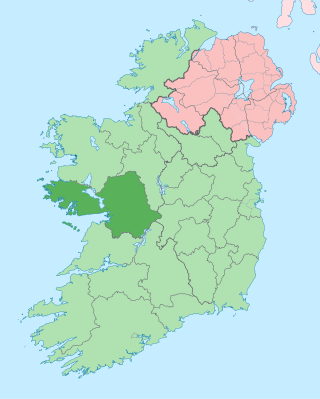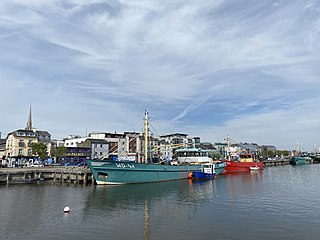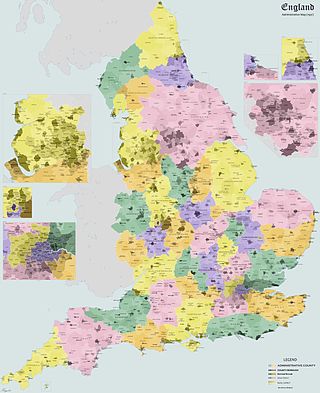Related Research Articles

County Galway is a county in Ireland. It is in the Northern and Western Region, taking up the south of the province of Connacht. The county population was 276,451 at the 2022 census.

County Sligo is a county in Ireland. It is in the Northern and Western Region and is part of the province of Connacht. Sligo is the administrative capital and largest town in the county. Sligo County Council is the local authority for the county. The population of the county was 69,819 at the 2022 census. It is noted for Benbulben Mountain, one of Ireland's most distinctive natural landmarks.

Wexford is the county town of County Wexford, Ireland. Wexford lies on the south side of Wexford Harbour, the estuary of the River Slaney near the southeastern corner of the island of Ireland. The town is linked to Dublin by the M11/N11 National Primary Route; and to Rosslare Europort, Cork and Waterford by the N25. The national rail network connects it to Dublin and Rosslare Europort. It had a population of 20,188 according to the 2016 census.
Dublin County Council was a local authority for the administrative county of County Dublin in Ireland.

Dún Laoghaire–Rathdown is a county in Ireland. It is in the province of Leinster and the Eastern and Midland Region. It is one of three successor counties to County Dublin, which was disestablished in 1994. It is named after the former borough of Dún Laoghaire and the barony of Rathdown. Dún Laoghaire–Rathdown County Council is the local authority for the county. The population of the county was 218,018 at the time of the 2016 census.

Municipal boroughs were a type of local government district which existed in England and Wales between 1835 and 1974, in Northern Ireland from 1840 to 1973 and in the Republic of Ireland from 1840 to 2002. Broadly similar structures existed in Scotland from 1833 to 1975 with the reform of royal burghs and creation of police burghs.

Galway City Council is the local authority in the city of Galway, Ireland. As a city council, it is governed by the Local Government Act 2001. The council is responsible for housing and community, roads and transportation, urban planning and development, amenity and culture, and environment. The council has 18 elected members. Elections are held every five years and are by single transferable vote. The head of the council has the title of mayor. The city administration is headed by a Chief Executive, Brendan McGrath. The council meets at City Hall, College Road, Galway.

The functions of local government in the Republic of Ireland are mostly exercised by thirty-one local authorities, termed County, City, or City and County Councils. The principal decision-making body in each of the thirty-one local authorities is composed of the members of the council, elected by universal franchise in local elections every five years from multi-seat local electoral areas using the single transferable vote. Many of the authorities' statutory functions are, however, the responsibility of ministerially appointed career officials termed Chief executives. The competencies of the city and county councils include planning, transport infrastructure, sanitary services, public safety and the provision of public libraries. Each local authority sends representatives to one of three Regional Assemblies.

The Local Government Act 2001 was enacted by the Oireachtas on 21 July 2001 to reform local government in the Republic of Ireland. Most of the provisions of the Act came into operation on 1 January 2002. The act was a restatement and amendment of previous legislation, which was centred on the Local Government (Ireland) Act 1898. The 2001 act remains in force, although significantly amended by the Local Government Reform Act 2014.

Passage West is a port town in County Cork, Ireland, situated on the west bank of Cork Harbour, some 10 km south-east of Cork city. The town has many services, amenities and social outlets. Passage West was designated a conservation area in the 2003 Cork County Development Plan.

Dún Laoghaire–Rathdown County Council is the authority responsible for local government in the county of Dún Laoghaire–Rathdown, Ireland. It is one of three local authorities that succeeded the former Dublin County Council on its abolition on 1 January 1994 and one of four councils in the old County Dublin. As a county council, it is governed by the Local Government Act 2001. The council is responsible for housing and community, roads and transportation, urban planning and development, amenity and culture, and environment. The council has 40 elected members. Elections are held every five years and are by single transferable vote. The head of the council has the title of Cathaoirleach (chairperson). The county administration is headed by a Chief Executive, Frank Curran. The county town is Dún Laoghaire. It serves a population of approximately 206,260.

Fingal County Council is the local authority of the county of Fingal, Ireland. It is one of three local authorities that succeeded the former Dublin County Council on abolition on 1 January 1994 and is one of four local authorities in County Dublin. As a county council, it is governed by the Local Government Act 2001. The council is responsible for housing and community, roads and transport, urban planning and development, amenity and culture, and environment. The council has 40 elected members. Elections are held every five years and are by single transferable vote. The head of the council has the title of Mayor. The county administration is headed by a Chief Executive, AnnMarie Farrelly. The county town is Swords.

South Dublin County Council is the authority responsible for local government in the county of South Dublin, Ireland. It is one of three local authorities created by the Local Government (Dublin) Act 1993 to succeed the former Dublin County Council before its abolition on 1 January 1994 and one of four councils in County Dublin. As a county council, it is governed by the Local Government Act 2001. The council is responsible for housing and community, roads and transportation, urban planning and development, amenity and culture, and environment. The council has 40 elected members. Elections are held every five years and are by single transferable vote. The head of the council has the title of Mayor. The county administration is headed by a Chief Executive, Daniel McLoughlin. The county town is Tallaght, with a civic centre at Monastery Road, Clondalkin. It serves a population of approximately 192,000.

The 1999 Irish local elections were held in all the counties, cities and towns of Ireland on Friday, 11 June 1999, on the same day as the European elections.
In Ireland, the term city has somewhat differing meanings in Northern Ireland and the Republic of Ireland.

Tipperary County Council is the authority responsible for local government in County Tipperary, Ireland. As a county council, it is governed by the Local Government Act 2001. The council is responsible for housing and community, roads and transportation, urban planning and development, amenity and culture, and environment. The council has 40 elected members. Elections are held every five years and are by single transferable vote. The head of the council has the title of Cathaoirleach (chairperson). The county administration is headed by a Chief Executive, Joe MacGrath. The administrative centres are Nenagh and Clonmel.

An election to South Dublin County Council took place on 23 May 2014 as part of that year's Irish local elections. Forty councillors were elected from six local electoral areas by proportional representation with a single transferable vote for a five-year term of office.

An election to Carlow County Council took place on 23 May 2014 as part of that year's Irish local elections. 18 councillors were elected from two local electoral areas for a five-year term of office on the electoral system of proportional representation by means of the single transferable vote (PR-STV).
The Local Government (Dublin) Act 1930 is an Act of the Oireachtas which altered the administration of County Dublin and Dublin City.
Local government in Dublin, the capital city of Ireland, is currently administered through the local authorities of four local government areas. The historical development of these councils dates back to medieval times.
References
- ↑ Local Government Act 2001 , s. 10: Local government areas ( No. 37 of 2001, s. 10 ). Enacted on 21 July 2001. Act of the Oireachtas .Retrieved from Irish Statute Book .
- ↑ Local Government Act 2001, s. 11: Establishment, titles and administrative areas of local authorities and consequential provisions ( No. 37 of 2001, s. 11 ). Enacted on 21 July 2001. Act of the Oireachtas .Retrieved from Irish Statute Book .
- ↑ Local Government Act 2001, 6th Sch.: Local Government Areas (Towns) ( No. 37 of 2001, 6th Sch. ). Enacted on 21 July 2001. Act of the Oireachtas .Retrieved from Irish Statute Book .
- ↑ "Putting People First" (PDF). Department of the Environment, Community and Local Government. October 2012. Retrieved 16 October 2012.
- ↑ Local Government Reform Act 2014 , s. 24: Dissolution of town councils and transfer date ( No. 1 of 2014, s. 24 ). Enacted on 27 January 2014. Act of the Oireachtas .Retrieved from Irish Statute Book on 21 May 2022.
- ↑ Local Government Act 2001, s. 185: Establishment of town council ( No. 37 of 2001, s. 185 ). Enacted on 21 July 2001. Act of the Oireachtas .Retrieved from Irish Statute Book .
- ↑ Local Government Act 2001, s. 187: Dissolution of town council ( No. 37 of 2001, s. 187 ). Enacted on 21 July 2001. Act of the Oireachtas .Retrieved from Irish Statute Book .